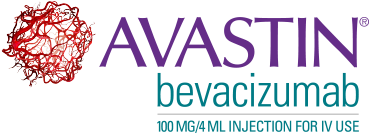The Co-pay Program is valid ONLY for patients with commercial (private or non-governmental) insurance who have a valid prescription for a Food and Drug Administration (FDA)-approved indication of a Genentech medicine. Patients using Medicare, Medicaid, Medigap, Veterans Affairs (VA), Department of Defense (DoD), TRICARE or any other federal or state government program (collectively, “Government Programs”) to pay for their Genentech medicine are not eligible. The Program is not valid for Genentech medicines that are eligible to be reimbursed in their entirety by private insurance plans or other programs.
Under the Program, the patient may pay a co-pay. The final amount owed by a patient may be as little as $0 for the Genentech medicine (see Program specific details). The total patient out-of-pocket cost is dependent on the patient’s health insurance plan. The Program assists with the cost of the Genentech medicine only. It does not assist with the cost of other medicines, procedures or office visit fees. After reaching the maximum annual Program benefit amount, the patient will be responsible for all remaining out-of-pocket expenses. The Program benefit amount cannot exceed the patient’s out-of-pocket expenses for the cost associated with the Genentech medicine. The maximum Program benefit will reset every January 1st. The Program is not health insurance or a benefit plan. The patient’s non-governmental insurance is the primary payer. The Program does not obligate the use of any specific medicine or provider. Patients receiving assistance from charitable free medicine programs (such as the Genentech Patient Foundation) or any other charitable organizations for the same expenses covered by the Program are not eligible. The Program benefit cannot be combined with any other rebate, free trial or a similar offer for the Genentech medicine. No party may seek reimbursement for all or any part of the benefit received through the Program.
The Program may be accepted by participating pharmacies, physicians’ offices or hospitals. Once a patient is enrolled, the Program will honor claims with a date of service that precedes the Program enrollment date up to 180 days. Claims must be submitted within 365 days from the date of service unless otherwise indicated. Use of the Program must be consistent with all relevant health insurance requirements. Participating patients, pharmacies, physicians’ offices and hospitals are responsible for reporting the receipt of all Program benefits as required by any insurer or by law. Program benefits may not be sold, purchased, traded or offered for sale.
The patient or their guardian must be 18 years of age or older to receive Program assistance. The Program is only valid in the United States and U.S. Territories, is void where prohibited by law and shall follow state restrictions in relation to AB-rated generic equivalents (e.g., MA, CA) where applicable. Eligible patients will be automatically re-enrolled in the Program on an annual basis. Eligible patients will be removed from the Program after 3 years of inactivity (e.g., no claims submitted in a 3-year timeframe). Program eligibility and automatic re-enrollment are contingent upon the patient’s ability to meet all requirements set forth by the Program. Healthcare providers may not advertise or otherwise use the Program as a means of promoting their services or Genentech medicines to patients. The Program is intended for the patient. Only the patient using the Program may receive the funds made available through the Program. The Program is not intended for third parties who reduce the amount available to the patient or take a portion for their own purposes. Patients with health plans that redirect Genentech Program assistance intended for patient out-of-pocket costs may be subject to alternate Program benefit structures. Genentech reserves the right to rescind, revoke or amend the Program without notice at any time.





